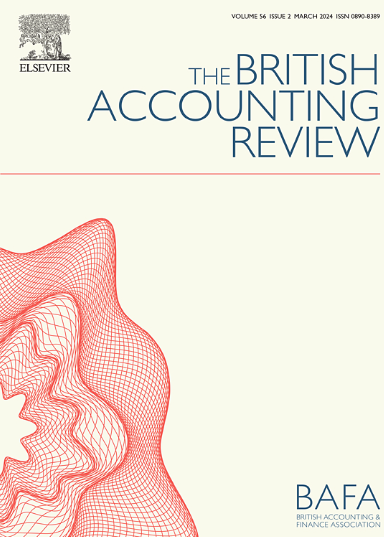Hybrid board governance: Exploring the challenges in implementing social impact measurements
IF 5.5
3区 管理学
Q1 BUSINESS, FINANCE
引用次数: 0
Abstract
This paper focuses on hybrid board governance and the challenges faced by the board of directors when implementing social impact measurements. Interviews with 36 board chairs and general secretaries in social hybrids in Sweden show that while boards support social impact measurements, they face obstacles in implementing them. Drawing on the institutional logics framework, we identify three main reasons for these implementation problems. First, amid field level regulations focusing on cost efficiency, boards find it difficult to switch to a social impact that lacks a single metric that can be measured annually. Second, board members struggle to find sufficient time when they serve on a pro bono basis, and it is difficult to hold them accountable when limited progress occurs. Finally, acknowledging board practice variation, we highlight the need to distinguish between “beneficiary-driven” and “membership-driven” social hybrids. In the former, boards face the challenge of operationalizing the long-term benefits for end beneficiaries; in the latter, interactions with members are so operationally focused that boards struggle to maintain a long-term agenda for implementing social impact measurement. Given these challenges, we propose that future research should explicitly incorporate the board level in theorizing how hybrid organizations manage institutional logics and performance measurement.
混合董事会治理:探索实施社会影响衡量的挑战
本文重点关注混合型董事会治理以及董事会在实施社会影响测量时面临的挑战。对瑞典 36 家社会混合型企业的董事会主席和秘书长进行的访谈显示,虽然董事会支持社会影响评估,但在实施过程中却面临障碍。根据制度逻辑框架,我们找出了造成这些实施问题的三个主要原因。首先,在注重成本效益的领域层面法规中,董事会发现很难转向缺乏可每年衡量的单一指标的社会影响。其次,董事会成员在提供无偿服务时很难找到足够的时间,当进展有限时很难让他们承担责任。最后,考虑到董事会的做法各不相同,我们强调有必要区分 "受益人驱动型 "和 "成员驱动型 "两种社会混合体。在前者中,董事会面临着为最终受益人实现长期利益的挑战;而在后者中,与会员的互动过于注重业务,董事会难以维持实施社会影响衡量的长期议程。鉴于这些挑战,我们建议未来的研究应明确将董事会层面纳入混合组织如何管理机构逻辑和绩效衡量的理论中。
本文章由计算机程序翻译,如有差异,请以英文原文为准。
求助全文
约1分钟内获得全文
求助全文
来源期刊

British Accounting Review
BUSINESS, FINANCE-
CiteScore
8.60
自引率
3.90%
发文量
39
审稿时长
76 days
期刊介绍:
The British Accounting Review*is pleased to publish original scholarly papers across the whole spectrum of accounting and finance. The journal is eclectic and pluralistic and contributions are welcomed across a wide range of research methodologies (e.g. analytical, archival, experimental, survey and qualitative case methods) and topics (e.g. financial accounting, management accounting, finance and financial management, auditing, public sector accounting, social and environmental accounting; accounting education and accounting history), evidence from UK and non-UK sources are equally acceptable.
 求助内容:
求助内容: 应助结果提醒方式:
应助结果提醒方式:


